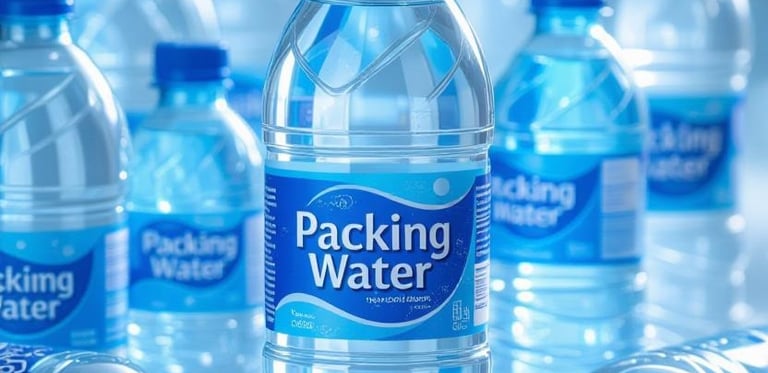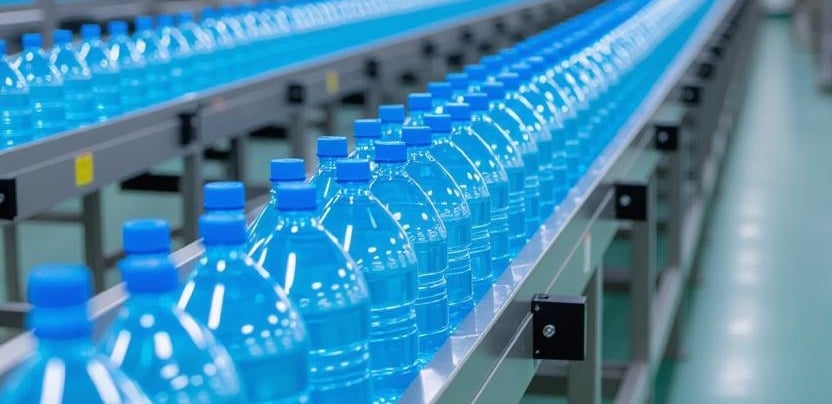Initiative on Packaged Drinking Water Regulations in India
Team hashtaglobe
9/26/20252 min read


Modi Government's Initiative on Packaged Drinking Water Regulations in India.
The query appears to refer to a recent regulatory reform by the Modi government aimed at simplifying licensing for packaged drinking water manufacturers in India. This initiative, announced in October 2024, removes the mandatory Bureau of Indian Standards (BIS) certification requirement for packaged drinking and mineral water, while retaining the Food Safety and Standards Authority of India (FSSAI) license as the primary regulatory mechanism. This change streamlines the process by eliminating dual certifications, reducing administrative burdens and costs for the industry, without compromising safety standards.
Key Details of the Initiative :
Background and Announcement:On October 17, 2024, the FSSAI issued a notification amending the Food Safety and Standards (Packaging and Labelling) Regulations, 2011. This followed advocacy from the packaged water industry, which highlighted the redundancies and delays caused by requiring both BIS (IS 14543:2016 for packaged water and IS 13428:2005 for mineral water) and FSSAI certifications.
What Changes:
BIS Certification Removed: Previously mandatory for all manufacturers, this is no longer required. BIS standards are now integrated into FSSAI regulations, ensuring compliance through a single framework.
FSSAI License Mandatory: All producers must still obtain an FSSAI license (central or state, depending on scale). This includes mandatory testing of water sources, regular quality checks, and adherence to updated labeling norms (e.g., clear disclosure of treatment processes).
Enhanced Oversight: In December 2024, FSSAI reclassified packaged drinking and mineral water as a "high-risk food category." This triggers stricter measures, including:
Annual third-party audits for central license holders.
Mandatory inspections before licensing.
Penalties for non-compliance, such as license suspension or product bans.
Rationale: The reform aligns with the Modi government's "Ease of Doing Business" agenda, responding to industry requests for deregulation while prioritizing consumer safety. It reduces compliance costs (estimated savings of up to 20-30% for small manufacturers) and accelerates market entry, potentially boosting the sector's growth from ₹40,000 crore in 2024 to higher projections by 2030.


Broader Context: Jal Jeevan Mission.
This regulatory tweak complements the flagship Jal Jeevan Mission (JJM), launched by Prime Minister Narendra Modi in August 2019 under the Ministry of Jal Shakti. JJM aims to provide safe, piped drinking water to every rural household by 2024 (extended to 2025 in some areas). As of September 2025:
Over 15 crore (150 million) households have functional tap connections, up from 17% coverage in 2019 to nearly 80%.
The mission has reduced waterborne diseases, empowered women (by cutting time spent fetching water), and integrated solar-powered schemes for sustainability.
Urban extensions under AMRUT 2.0 ensure similar access in cities, with a focus on groundwater recharge and rainwater harvesting.
Impact and Next Steps:
For Manufacturers: Existing BIS-certified units must transition to FSSAI audits by mid-2025. New entrants apply directly via the FoSCoS portal.
For Consumers: Enhanced audits ensure safer products, with transparent labeling on sourcing and treatment.
Criticisms: Some environmental groups argue it could increase plastic waste from bottled water, urging stronger recycling mandates under the mission.
